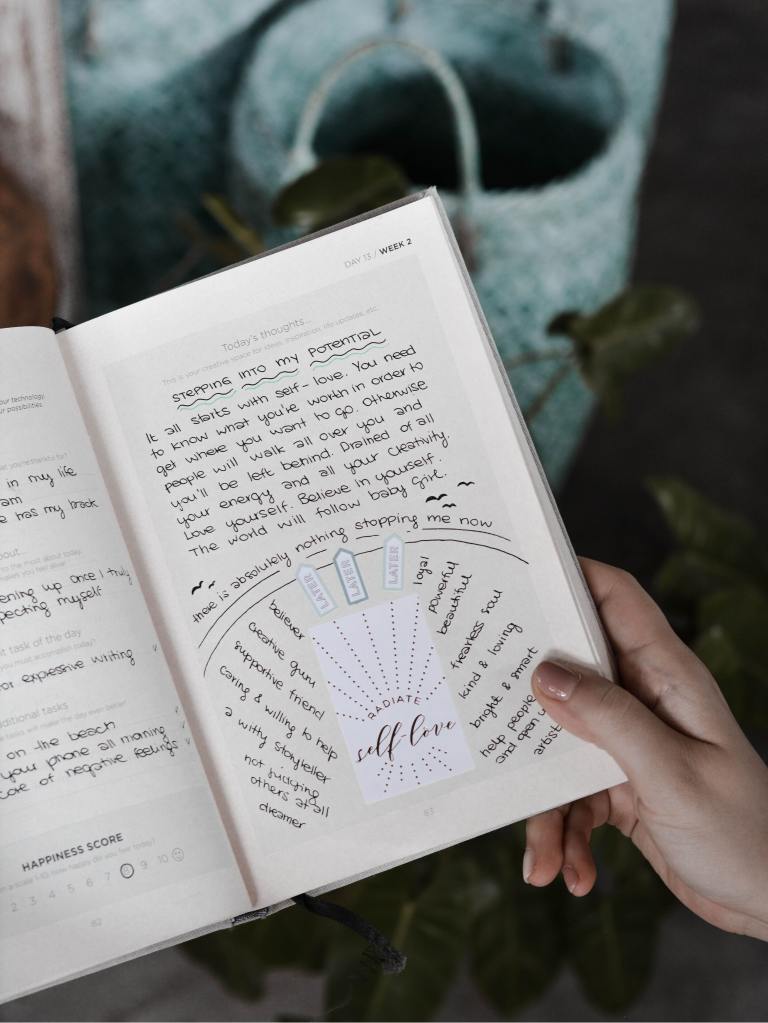Defining Gratitude: What it Is & What It Means To Practice

In a post-neuroscience world, the concept of gratitude has emerged as a powerful force for mental well-being and spiritual growth. While gratitude is often thought to be a simple expression of appreciation, its depth and transformative potential extend far beyond surface-level social niceties.
In this exploration, we delve into the multifaceted nature of gratitude, examining what it truly is and how the practice of gratitude can be a cornerstone for individual spiritual and mental health, especially in the context of living with Borderline Personality Disorder (BPD) or healing from complex trauma.
Important note: Gratitude is not the answer to all of life’s ills. This piece is aimed at those looking to better understand and potentially build a stronger personal gratitude practice while in safe surroundings. It’s crucial to keep physical and psychological safety in mind when building a gratitude practice for its therapeutic effects.
Remember: healing trauma requires safety. Don’t gaslight yourself with gratitude for what’s harmful, and always use discernment.
What is Gratitude Beyond Surface-Level Appreciation?
At its core, gratitude is more than just saying “thanks” or acknowledging the positive aspects of life. To illustrate why it’s so much more than a ‘love and light’ new-age ideology, I’m going to start off with a few different definitions of gratitude and its scope.
Key definitions of gratitude include:
- The Positive Psychology movement defines gratitude as an emotion similar to appreciation. But that’s not quite the whole picture.
- The American Psychological Association more specifically defines this phenomenon as a sense of happiness and thankfulness in response to a fortunate happenstance or tangible gift.
- 2020 research defines gratitude as both a state and a trait, meaning you can experience gratitude at a certain moment in time as a temporary state of being, and you can also experience gratitude as a more long-term, dispositional character trait.
- Historic research states that as a trait, an individual practices gratitude as part of their daily life. From this perspective, gratitude is considered a character strength.
- Genetic studies have also linked gratitude levels to Oxytocin levels, also known as the ‘Love Hormone’. Secretion of Oxytocin has been significantly associated with the quality and frequency of expressions of gratitude toward a romantic partner in both a laboratory setting and in daily life.
What Does it Mean To Practice Gratitude?
My take on these definitions of gratitude is that anyone can experience gratitude in a transitory state, as a reactionary emotion that comes and goes with the ups and downs of life.
But the real magic, I believe, lies in solidifying that state into a long-term character trait—or a practice.
Gratitude doesn’t have to be out of your control. It’s something you can learn to cultivate over time, starting wherever you’re at right now.
Gratitude as a Spiritual Practice
Before we dive into the psychological side of gratitude, it’s important to recognise that gratitude holds a significant place in various spiritual traditions. Many spiritual teachings emphasize the importance of cultivating gratitude as a means of connecting with a higher power, the Universe, or one’s inner or higher self. It could even be linked to the spiritual perspective of DBT Wise Mind—or your intuition.
From a spiritual perspective, gratitude becomes a form of prayer or meditation, a way of expressing humility and acknowledging the vastness of existence.
From a Law of Attraction or manifestation perspective, what you think, you attract.
Mindfulness, manifestation, and self-love blogger Zanna Keithley writes that gratitude in particular is especially powerful for becoming a magnet to experiences that bring you more joy, love, empowerment, freedom, and gratitude. She states that:
Gratitude invites an abundance mentality. Through the lens of gratitude, you view your life in terms of all that you have, not all that you lack.
When you express gratitude for all that you have, you’re essentially saying, “More of this please.” Expressing gratitude for the love that exists in your life invites more love to come forward. Expressing gratitude for the money you possess (even if it’s not a lot by other people’s standards) opens you up to receiving more money.
It’s like putting an order into the Universe: “This is what I have that I really appreciate, and I’m open to receiving more of it.”
Zanna Keithley
Practicing Gratitude For Mental Health
Numerous studies have highlighted the positive impact of gratitude practices on mental health.
From reducing symptoms of depression and anxiety to enhancing overall psychological well-being, the practice of gratitude has proven to be a therapeutic intervention with profound effects.
In the context of complex trauma recovery, where individuals may struggle with feelings of helplessness and despair, gratitude can act as a beacon of hope. By practicing consciously focusing on the positive aspects of their current life, individuals can begin rewiring their neural pathways, fostering a more optimistic outlook on life as safety settles in.
This shift in perspective is not a dismissal of the challenges faced but a recognition of the strength and resilience gained through navigating those challenges, in the process of healing from them, or in the newfound safety of life after trauma.
Gratitude Journaling and Its Therapeutic Effects
One practical way to integrate and practice gratitude in your daily life is through journaling.
Gratitude journaling involves regularly noting down things one is thankful for, whether big or small. This intentional practice has been shown to have a range of therapeutic effects, as we’ve discussed above.
For individuals navigating complex trauma, maintaining a gratitude or mental health journal can serve as a tool for reclaiming agency. By actively choosing what to focus on and express gratitude for, individuals can exert control over their narrative, fostering a real, felt sense of empowerment.
This process can be particularly transformative in breaking free from the perceived chains of victimhood often associated with complex trauma or in BPD recovery.
Once again, it’s important to keep psychological safety in mind when building a gratitude practice for its therapeutic effects. Remember: healing trauma requires safety. Don’t gaslight yourself with gratitude for what’s harmful.
5 Gratitude Journal Prompts To Try
Gratitude journal prompts can be a really useful starting point. It really can be a super quick, super simple process if you want it to be. Some great starter journal prompts for gratitude could include:
- Today, I am grateful for…
- Right now, I am grateful for…
- The best part of my day was…
- Looking around me, I can see X things that I am grateful for. They are…
- Today was really tough, and I am still so grateful that…

Mindfulness and Gratitude: A Powerful Duo
Mindfulness, the practice of being present in the moment without judgment, aligns seamlessly with gratitude. When individuals practice mindfulness skills, they open themselves to the richness of each experience, allowing gratitude to naturally emerge.
In healing complex trauma, intrusive memories and heightened emotional responses may be common. By grounding oneself in the present moment and appreciating the simple joys of life, individuals can create a buffer against the overwhelming effects of past traumas, bringing their focus back to the small details of the present moment through their senses.
Think of it as the 54321 Method — but solely with the things you appreciate.

Challenges in Practicing Gratitude Amidst Complex Trauma
While the benefits of gratitude are clear, it’s essential to acknowledge the challenges individuals may face in embracing this practice, particularly in the context of complex trauma. Trauma can create a barrier to positive emotions, making it difficult for individuals to connect with feelings of gratitude, know how to connect safely with these emotions or to even want to.
In such cases, a gentle and compassionate approach is crucial. Give it time.
Seeking professional support, such as therapy or counseling, can provide individuals with the necessary tools to navigate the complexities of their emotions, learn to regulate them, and gradually open up to the idea and eventual practice of gratitude.

Cultivating a Gratitude Practice: Practical Tips
For those looking to incorporate gratitude into their daily lives, here are some practical tips:
- Start Small: Begin by acknowledging simple things you are grateful for, such as a warm cup of tea, a kind gesture from a friend, or a moment of quiet reflection.
- Consistent Practice: Establish a routine for gratitude journaling or reflection. Consistency is key to reaping the long-term benefits of this practice. You can take a look at my gratitude journal examples for inspiration or download my daily mental health journal prompts PDF for free here.
- Mindful Moments: Integrate mindfulness into your day by consciously savoring positive experiences. This can be as simple as appreciating the taste of a favorite meal or the warmth of sunlight on your skin.
- Expressing Gratitude: Take the time to express gratitude to others. A heartfelt thank-you note or a simple acknowledgment of someone’s impact on your life can create a ripple effect of positivity.
- Professional Guidance: If navigating complex trauma, consider seeking support from mental health professionals who specialize in providing safe, trauma-informed care. They can provide tailored guidance on integrating gratitude into your healing journey.
Final Thoughts On Gratitude in 2024
In the intricate tapestry of mental health, complex trauma, and spirituality, gratitude emerges as a powerful thread that weaves resilience, healing, and a profound connection to the self and the world.
Beyond a mere social nicety, gratitude is a transformative practice that invites individuals to embrace the full spectrum of their experiences, finding strength and meaning even in the face of adversity.
As we explore the depths of gratitude, may we discover its capacity to not only uplift our spirits but also serve as a guiding light on the path to healing and self-discovery.
You Might Like: The Little Guide To DBT Mindfulness Skills

This 30 page digital e-book includes:
- 6 DBT Mindfulness Skill Graphic Cards with easy-to-understand visual designs that help you remember them.
- 20+ Mindfulness Skill Journal Prompts with my own real-life DBT journal entries for each skill.
- Full page journal templates to help you easily combine and learn how to use the skills.
- Personal insights from someone who truly had their life saved by DBT – and how I went from zero DBT skills to daily skills use.



A very in depth look at gratitude, I really need to start practicing this again, great post.
LikeLike
Thanks so much for reading! I hope you found the perspectives useful. It’s easy to fall out of the habit – gently reminding myself to pick up my gratitude diary again this evening!
LikeLiked by 1 person